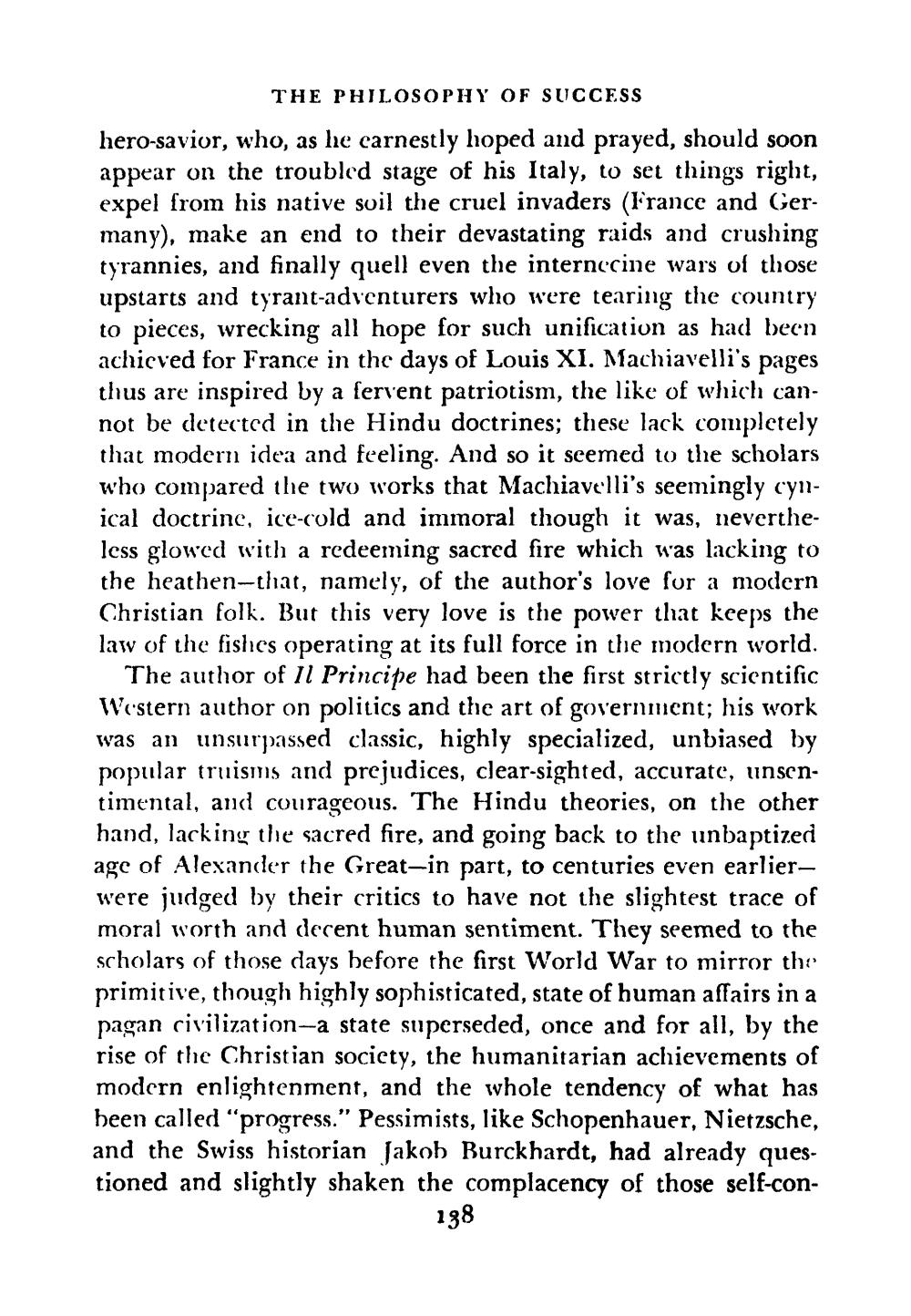________________
THE PHILOSOPHY OF SUCCESS
hero-savior, who, as he carnestly hoped and prayed, should soon appear on the troubled stage of his Italy, to set things right, expel from his native soil the cruel invaders (France and Germany), make an end to their devastating raids and crushing tyrannies, and finally quell even the internecine wars of those upstarts and tyrant-adventurers who were tearing the country to pieces, wrecking all hope for such unification as had been achieved for France in the days of Louis XI. Machiavelli's pages thus are inspired by a fervent patriotism, the like of which cannot be detected in the Hindu doctrines; these lack completely that modern idea and feeling. And so it seemed to the scholars who compared the two works that Machiavelli's seemingly cynical doctrine, ice-cold and immoral though it was, nevertheless glowed with a redeeming sacred fire which was lacking to the heathen-that, namely, of the author's love for a modern Christian folk. But this very love is the power that keeps the law of the fishes operating at its full force in the modern world.
The author of Il Principe had been the first strictly scientific Western author on politics and the art of government; his work was an unsurpassed classic, highly specialized, unbiased by popular truisms and prejudices, clear-sighted, accurate, unsentimental, and courageous. The Hindu theories, on the other hand, lacking the sacred fire, and going back to the unbaptized age of Alexander the Great-in part, to centuries even earlierwere judged by their critics to have not the slightest trace of moral worth and decent human sentiment. They seemed to the scholars of those days before the first World War to mirror the primitive, though highly sophisticated, state of human affairs in a pagan civilization-a state superseded, once and for all, by the rise of the Christian society, the humanitarian achievements of modern enlightenment, and the whole tendency of what has been called "progress." Pessimists, like Schopenhauer, Nietzsche, and the Swiss historian Jakob Burckhardt, had already questioned and slightly shaken the complacency of those self-con
138




